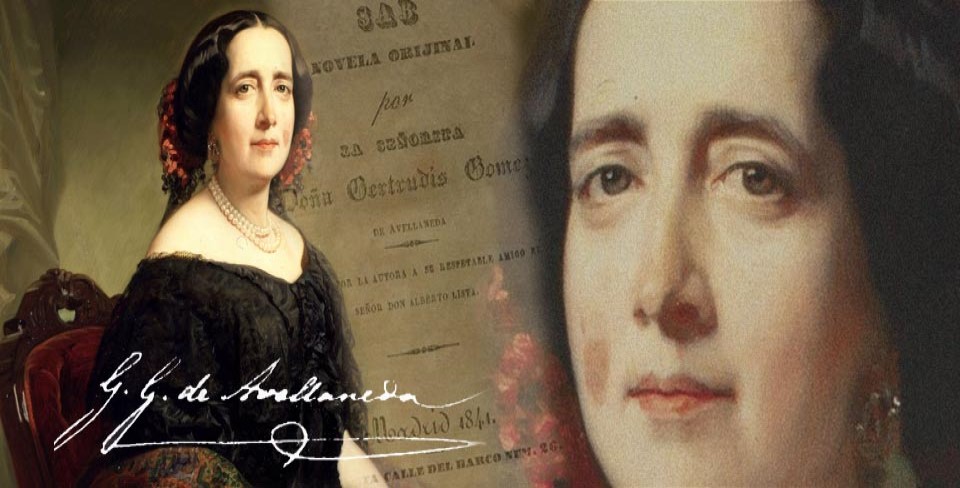150th Anniversary of the Death of Gertrudis Gómez de Avellaneda

Today we commemorate the physical departure of Gertrudis Gómez de Avellaneda, which took place in 1873. A writer of great intellect and determination, she laid the foundations for the anti-slavery novel, promoted experimentation within Romanticism, and questioned the canons and prejudices of the time, which allowed her to set a precedent in 19th-century Spanish-American literature.
Her works include the novels Sab (1841), Dos mujeres (1842), and Guatimozín, último emperador de México (1846). Her poetry reflects modernist and romantic experiments, and her work for the theater includes the dramas Saúl (1849) and Baltasar (1858) and the comedy La hija de las flores (1852).
In El discurso de Gertrudis Gómez de Avellaneda: identidad femenina y otredad (2002), the Colombian specialist Brígida Pastor explains the poet’s merits.
«(…) she was the most outstanding Cuban-Spanish writer of the 19th century and was a very outstanding example, both for her unconventional life and for the expression of her liberal ideas in her literary work. Not only did she rebel against the canons established by society through her personal experiences, but she also filled her writings with attitudes and feelings that reflected her non-conformism in the face of a repressive and conventional society.»
In the introduction to this text, the Cuban essayist and literary critic Nara Araújo points out the fundamental characteristics of Tula’s work.
«A grandiose poet, even close to classicism, (…) she dared to make a career in a man’s terrain (…) At a time when marginality was a matter of literary interest and Romanticism was exploring the universe of the excluded and subjugated. Avellaneda fought hypocrisy with anger and humor, creating characters yearning for liberation in stories about bandits and slaves, kept and unhappily married women, and artists».
Today, 150 years after her death, we remember the work of a writer who used Cuba as a reference point for projecting her work. As Rosario Rexach expressed in Estudios sobre Gertrudis Gómez de Avellaneda: La reina mora del Camagüey (1995): «(…) she cannot be regarded – without sinning against the truth – as a militant Cuban in the political sense. Nor has she ever intented to be one. But to deny her condition as a Cuban by feeling and will is to go beyond what her life and work allow (…)».
Photo: https://www.cervantesvirtual.com/



